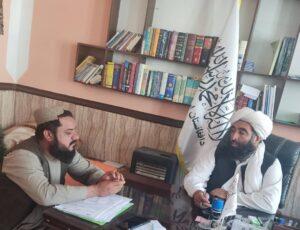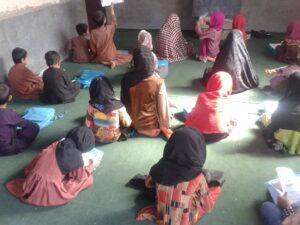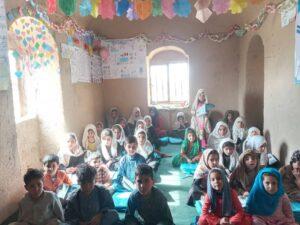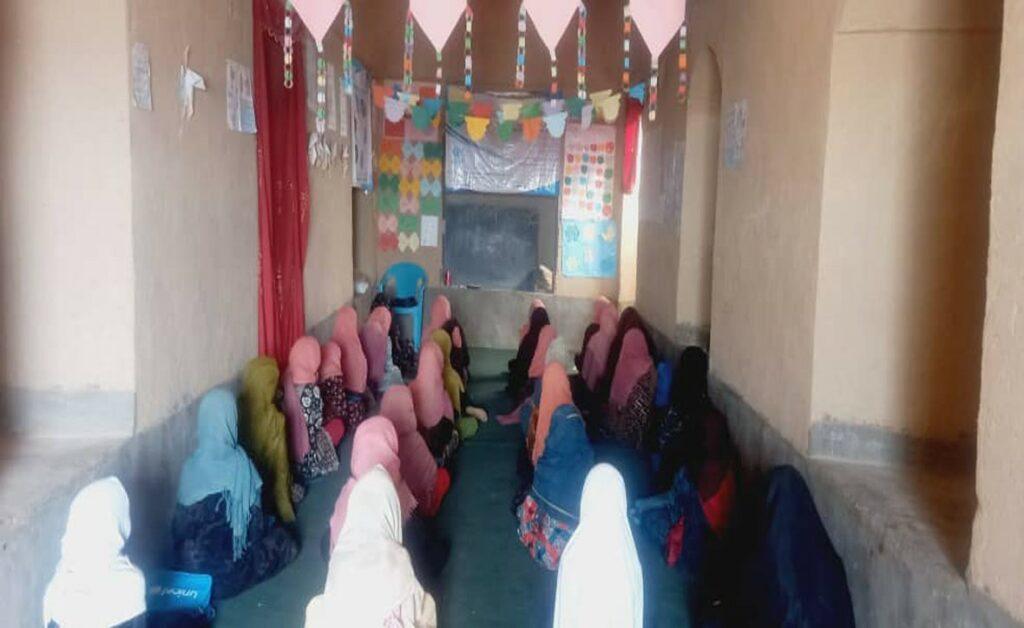FARAH (Pajhwok): The Education Department of western Farah province has established 600 local classes during the past one and a half years, enabling 18,000 out of school children to get education.
These classes have been set up in remote areas of the province, where children had been deprived of education for the past 20 years.
Farah Education Director Maulvi Akhtar Mohammad Zaeem told Pajhwok Afghan News there had been no education facilities in remote areas of the province since last 20 years.
But in the past one and a half years, he said, the ground was paved for thousands of children to find access to education in Farah City and districts which were far away from schools.
He said 600 local classes have been set up across the province and one teacher for each class has been appointed. He said 9463 boys and 8537 girls were enrolled in the classes financially supported by the United Nations Children’s Fund (UNICEF).
These children were taught by 145 male and 450 female teachers, Zaeem said, adding that children graduating from the classes were admitted in government schools as per agreement with the Ministry of Education.
He promised that schools would be built for children in remote areas in the near future.
A number of religious scholars, tribal elders and common people praised the establishment of the local classes, but they demanded permanent places and schools for education.
Maulvi Abdul Hameed Siyar, a resident of Bala Buluk district and a religious scholar, said education was mandatory and if children grew illiterate, they became burden on the community.
He commended the Education Department’s efforts, saying thousands of children in remote areas were provided the opportunity to learn during the past one and a half years.
But he asked the Education Department to construct schools in remote areas so that children could get permanent education.
Ghulam Sakhi Jamali, a tribal elder from Bakwa district, said most children in remote areas were deprived of education in the past, but now they were enrolled in local classes.
He said the local classes were useful, insisting that human beings needed education just like food and water. He also asked the government to build schools besides the local classes in remote areas.
Civil society activist Fariba Sharifi said paving the way for thousands of girls and boys in remote areas of Farah to pursue education was a good step because they were deprived of this blessing in the last 20 years.
She added: “Knowledge is a must because an illiterate person cannot even perform prayers and other religious rituals properly”.

Rahmuddin Akhundzada, a resident of Fararud district, said: "In the past 20 years, no school was established in our area. All my older children are illiterate.”
However, he said, after the Islamic Emirate’s return, classrooms were established for children. He hoped permanent education system would be provided to their children in future.
He asked the government to increase the number of local classes and build primary schools for children in remote areas.
Qari Samiullah Qadri, a resident of Qaziabad area of the district and a local class teacher, said he has been teaching the children of his village since 18 months.
“I am very happy that after 20 years, children in our area are provided with education and I am a teacher in my village.”
Faiz Mohammad, a resident of Tapa Sadat village, also said that children in their village previously only learnt the Quran in mosques and were deprived of schooling.
He said a local class has been set up in their village since a year and 30 girls were studying in the class.
Mujdha, a local class student in Qaziabad village of Fararud district, said previously there was a school in their village, but now a class has been created. "I am also studying in the class and I am in second class," she said.
She said school was far away from their village and students could not go there and as a result many children were deprived of education.
She urged the government to build schools in remote areas in order all children were able to have a bright future.
Children in most remote areas of the country have been deprived of education due to the past conflict.
However, since about one year and a half years, the government has established local classes in various provinces with the help of international aid organizations within the framework of the Ministry of Education.
ma








GET IN TOUCH
NEWSLETTER
SUGGEST A STORY
PAJHWOK MOBILE APP